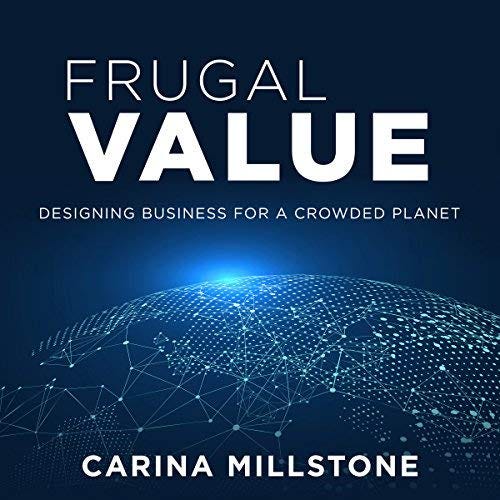An Interview with Carina Millstone

“We cannot have an ecologically sustainable economy when we have the publicly traded corporation as an economic actor,” says Carina Millstone, author of Frugal Value: Designing Business for a Crowded Planet, in a recent Next System Podcast.
Millstone is deeply concerned with how we build a sustainable economy, one that “creates the environmental conditions on which human life can flourish now and in the future.” In the face of the most recent international climate change report, giving us twelve years to make massive changes in the way we live to keep global temperatures from rising more than 1.5 degrees Celsius, Millstone offers a vital perspective on the limits of current ownership models to solve the sustainability problem.
The effort to make multi-national, investor-owned corporations “sustainable,” she believes, is doomed. The business case for sustainability is limited, Millstone argues. Taking steps to save our planet requires moral decision making. The publicly traded corporation is not designed to make these choices. Worker ownership, by contrast, opens up new possibilities (a concept Fifty by Fifty recently explored in its paper Next Generation Enterprise Design).
As she explains in her conversation Adam Simpson, program associate at The Next System:
“What happens in the instance of a public corporation where the shares are traded on public markets is that the only motivation for shareholders to be in any way involved in the firm is the possibility of reaping high dividends in the next quarter. And this creates a firm where the drivers are to maximize cost externalization. That is to say, any social or environmental impacts will not be priced in products, but passed on to societies, and of course to grow, because the more the firm grows, the higher the profit.
Millstone contrasts the distant ownership of shareholders with the potential to transform our economy through worker ownership models.
“Both these elements, this kind of cost externalization element and this growth element, are really inherently very problematic for the challenge of sustainability because what we want is actually products that are less impactful on communities and the environment, and what we want are businesses that don’t need to continually grow and continually push consumption. And that’s why I think this kind of big corporation that is investor-owned, where the owners are so distant from the firm, present so much trouble for the challenge of sustainability, which is one now ultimately of reduced resource use.”
Millstone contrasts the distant ownership of shareholders with the potential to transform our economy through worker ownership models. In worker-owned firms, she argues, “there’s less of a driver to expand.” She continues: “For the workers, they might well prioritize more enjoyable working conditions over growth. So I think this is a question of proximity to the work, the person actually doing the work and the person also being the owner, they’re one and the same person, I think is likely to lead to companies that exhibit characteristics that are more congruent with resource use reduction.”
Returning to the theme of moral responsibility, Millstone notes, “Part of the problem with the investor-owned model where investors are so distant from the firm, and when there are loads and loads of investors, is that there’s zero moral responsibility amongst the owners for the work of their firm, neither legal nor moral responsibility. And this is fundamentally a problem because, as we discussed earlier, taking action for sustainability is ultimately a moral positioning. It’s sort of a moral decision that cannot happen in a context in which owners feel no moral responsibility at all with regards to the conduct of the business.”
Fifty by Fifty is working to transform the U.S. economy by growing employee ownership. Join our campaign, and we’ll send our monthly newsletter, filled with great company stories, right to your in box.
